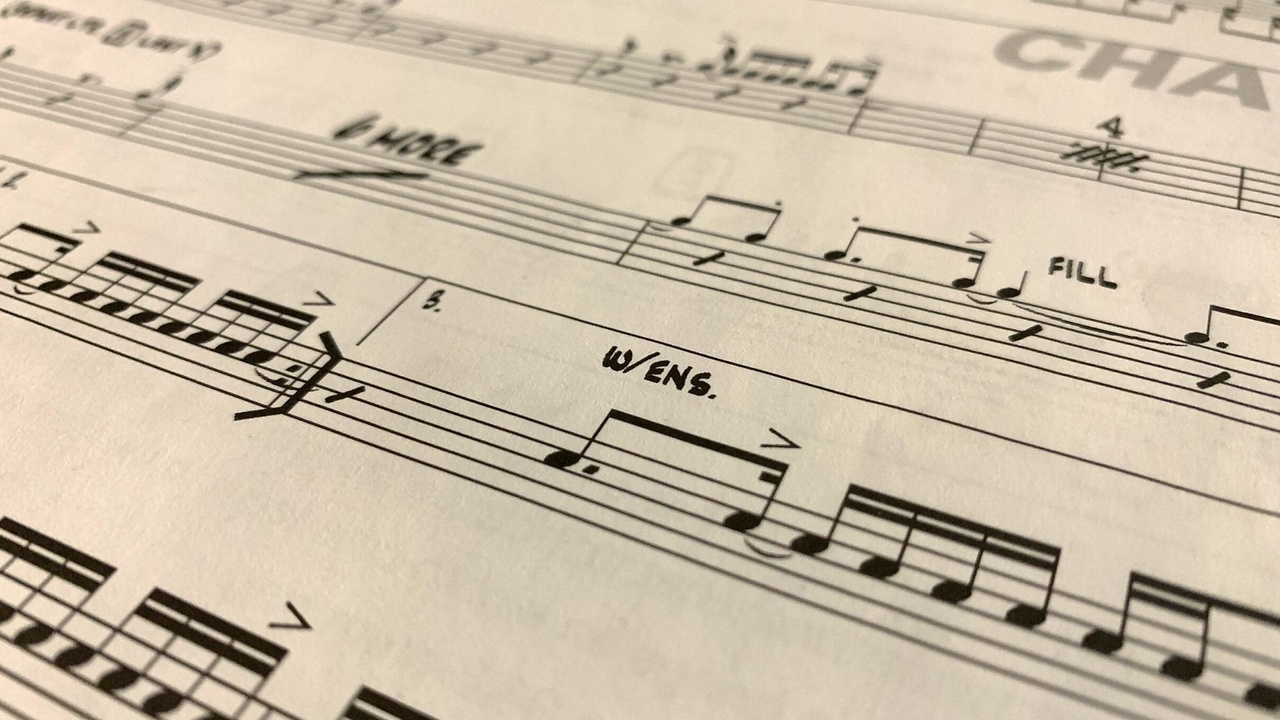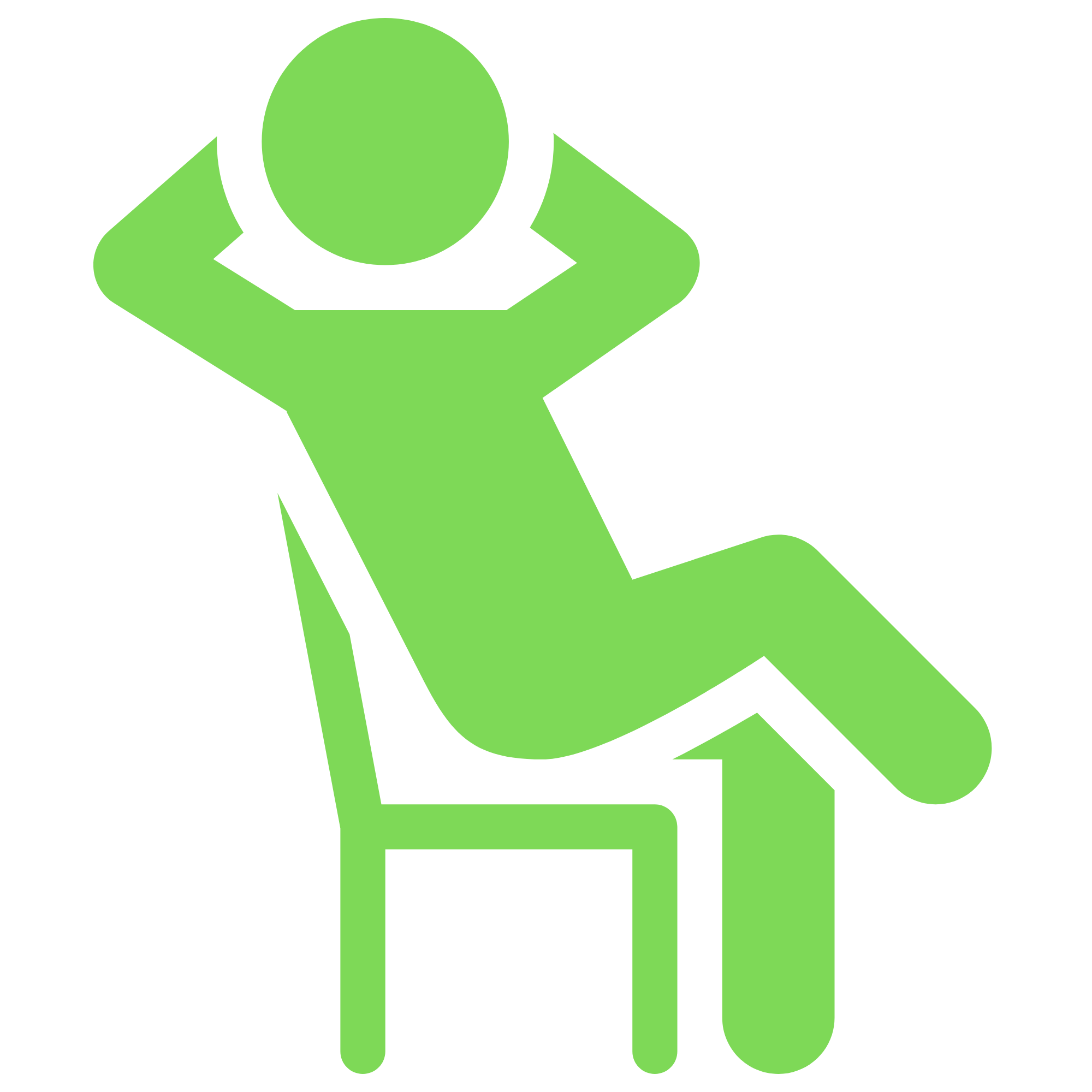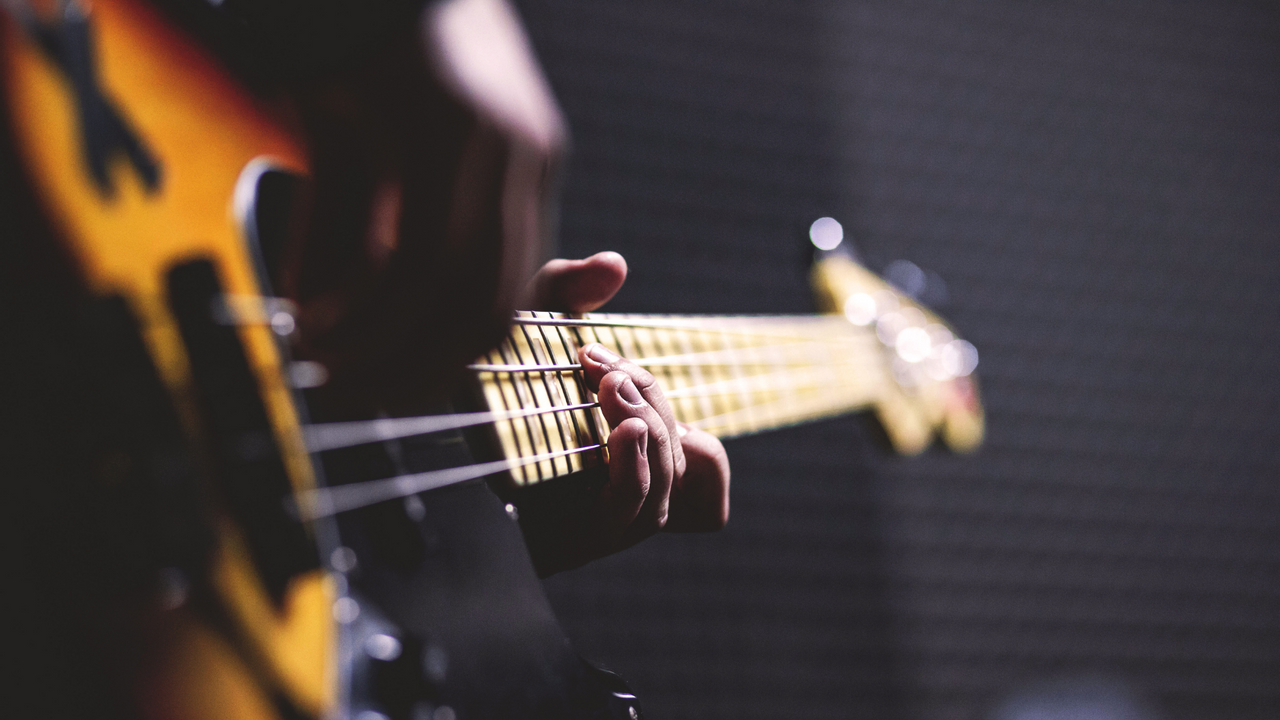Should you be counting while playing a song?

Do you try to count while playing a song, whether you’re playing along to a record or playing with your band? Then do you get panicked and frustrated when you realize you’ve miscounted and you don’t remember how much longer to play a particular pattern or when that fill coming up starts?
Then everything just becomes chaos and anxiety because you realized you’ve failed at counting yet again. How will you ever REALLY learn the song where you know when everything is coming?
I’VE BEEN THERE. Time and time again. I’ve also spent time in the classical percussion world where you have to count every bar because you’re reading sheet music, and that's scary sometimes.
But do we really need to be counting bars while playing music on the drums? Here’s my short answer:
no.
Let’s unpack this a little, because I really want to help you learn songs well and play them the right way - yet not have to freak out about counting. YOU CAN DO THIS.

Why you shouldn't sweat the counting...
I believe th...
The biggest MYTH about playing with a bass player

BIGGEST MYTH: The most important thing you'll do as a drummer is listen to the bass player and lock with what they're playing, because this is the most important relationship in the band.
FALSE.
Why is this false? We’ll break this down, and I’ll share with you what you should ACTUALLY be focusing on when playing.
What’s the most important part of any song you might play on a gig? Think pop, rock, country… most typical styles of music you’d play. What’s the most important element of the song in any of these styles?
It’s the MELODY! That melody will be sung by the vocalist, or it might be played by a guitarist during an intro riff. Either way, all other parts in the song are based off of that melody.
Now what’s the SECOND most important part of a song? If melody is most important, we could probably say that harmony (or chords) is second most important. But we could also go another direction and say that rhythm is second most important, seeing as how rhythm is an important part of me...
How to “CHEAT” at learning any song fast

You don’t have to practice a song over and over and over to learn it, nor do you have to download drum tabs or sheet music in order to learn it the right way. We’re digging into a predictable, repeatable method you can start to implement in your song learning, practicing, and performing TODAY.
Yes, we’ll be talking a little about my favorite “cheatsheet” charting method. But that’s not the only piece of the puzzle when we’re talking about learning songs fast. After all, you want to be able to learn then perform songs without physically practicing if you’re in a hurry. We’re covering some powerful tips you absolutely must implement in order to pull off the no-practicing gig prep. You can do it, though, so let’s get going!
WATCH: How to Cheat at Learning Any Song Fast on the Drums
Thanks for being a subscriber!
God Bless,
Stephen
The band MESS-UP where we played two songs at once

“We as a band need to practice messing up.”
This was the statement my friend and I landed on over coffee the other day. He’s the worship leader at my church, and we were talking about ways for us to grow musically as a worship band.
The best bands are not the best because they never mess up. They’re the best because they know how to handle and hide mistakes. Sometimes we fear mistakes so much that our primary goal is avoiding them, rather than learning how to recover from them. You can try and try and try to never mess up, but it’s going to happen. The key in no longer fearing the mistakes is knowing how you’ll handle them. So we were brainstorming ways to actually practice doing this in rehearsal.
Believe it or not, Sunday rolled around and we didn’t have to intentionally practice messing up in order for a good old-fashioned, accidental mess-up to happen.
Now I want you to think about something for a moment… What’s the worst mistake you think you could make as a drummer playing wi...
5 Toxic Drummer Habits You MUST Avoid

I recently heard a gig horror story involving a drummer who failed at his job in more ways than one. The sad thing is, he may not have realized how badly he was failing and wreaking havoc on the band.
Now my point today actually isn’t to share with you all the details of how this guy failed miserably. It’s really to give you some preface to today’s video, which highlights the “5 Toxic Drummer Habits You MUST Avoid.”
This particular drummer actually excelled at all the usual “drummer skills” that come to mind, like solid timekeeping, appropriate playing (playing for the song), arriving on time prepared, and in general “sounding good” on his instrument.
So what went wrong?
The drummer on this gig had an ego problem, and his lack of respect for the bandleader and overall arrogance led to a whole host of issues that good timekeeping and proper playing couldn’t solve. He failed to have the vocalist's best interest in mind, he failed to be a team player who worked to make the band sound ...
How to REALLY Feel Comfortable & Musical Behind the Kit
Sometimes the most practical, helpful thing you can do to be a better drummer is relax. Literally.
Relaxation is something we’ve learned to appreciate here at the Clark Household since having our baby 2 months ago! Any chance we can get pays off.
|
|
But it’s easy for me to say “relax!” while playing the drums, and it’s another to actually do it. Ultimately it comes down to a couple of things…
- Build up your playing from a technical standpoint so that you’re not constantly bumping a ceiling. Here’s a recent video that will help you with that.
- Physically relax while you play. Listening helps a bunch, and here’s a link to today’s video that will help you with exactly that (+ a bunch of additional tips for getting better sounds out of your drums!)
Beyond these two core tips, logging real-world playing experience with actual musicians is the best way to rapidly grow in these skills. But I also heard something interesting from the drummer, Shawn Pelton. In a podca...
How Writing Music Tripled My Drumming Skill in Only 4 Months
In January of 2016, I was in a unique position that provided an interesting opportunity.
I was doing music full time, which consisted of teaching lessons regularly and playing gigs every weekend. I was doing some extra music-related work regularly also, but I had a good bit of down time during the day - especially mornings. My wife and I had just gotten married a few months before, and we were living pretty cheaply in our tiny 450 square foot apartment. (If you’ve ever watched some of my oldest videos, you’ve seen a glimpse of that place. Most of the time we don’t miss it.)
I was honestly getting a little bored, because I couldn’t just practice drums all day (#noiseconstraints!). Lessons didn’t happen til afternoons and gigs didn’t happen until evening. How could I spend the first half of my day wisely so that down the road I wouldn’t regret this time in life when I was blessed with so much spare time?
I decided to put myself to work at something new that wasn’t drums.
Now a month ...
The Most Important Thing Music School Taught Me…
In light of last week’s email about my first week of music school, I thought I’d share the most valuable and practical skill that I took away from 4 years in a university music program.
Here’s the cool thing: You don’t have to go to music school to gain this skill.
The most difficult class I ever took was ear training. In this class we had to “sight sing” melodies (read the notes on the page and sing the melody correctly without accompaniment), listen to and identify chord types, scales, intervals, and more, and listen to melodies and chord progressions and write out the exact notation for what we were hearing. This musical “dictation” was the most difficult and dreaded portion of the class for everyone. The funny thing, too, about this kind of class was that there was no possible way for anyone to cheat. YOU had to be able to sight sing your melodies for the professor. YOU had to properly write out your melodic and harmonic dictation passages. And the class was way too small to even...
The Gig I Played Without Rehearsal OR Soundcheck
What is your default? What’s the one thing you rely on that you can gravitate toward and lean on in a tough musical situation? In other words - What are you so comfortable doing that you can excel at it while chaos ensues around you? A recent gig made me think about this…
A drummer friend in town asked me to sub for him on a cover gig. I eagerly accepted, mainly because I like the challenge of learning new songs in a less familiar genre. Sometimes I get so into the groove (no pun intended?) on my regular gigs that it’s easy to stop growing as a musician. When the opportunity came to play with people I’d never met at a venue I’d never played at…playing a lot of unfamiliar songs…I jumped at the chance.
My friend sent me a setlist of the tunes they most commonly played at this particular club, so I got to work charting about 30 songs. I enjoy gig prep, and I love being forced to listen to stuff I don’t hear everyday in order to gain proficiency in a genre I don’t play everyday. But once...
How I Prepare for a Gig: Song-Learning-101
Song learning usually consists of 3 simple steps for me. If there’s a recording or demo of the song, I’ll listen to it and write a chart. From there I’ll jump over to the kit and play through it, and I’ll be good to go. This sounds pretty simple and straightforward (and it really is!), but there are a few key things you want to look out for and make sure you do. The question of “what’s the best way to learn songs” is one I get frequently, so I hope this lesson-style email helps you out!
Step 1: Listen to the Recording
Really listen to the recording. Whether it’s the original record that you’re covering, a vocals-and-guitar demo your bandleader sent you, or a fully put together demo of a new arrangement, listen to the recording thoroughly. In other words, a quick listen in the car doesn’t count. Listening via your phone speaker doesn’t count. Listening to it with any distractions going on around you shouldn’t count either. Have a dedicated “listening time,” whether you’re listening th...



